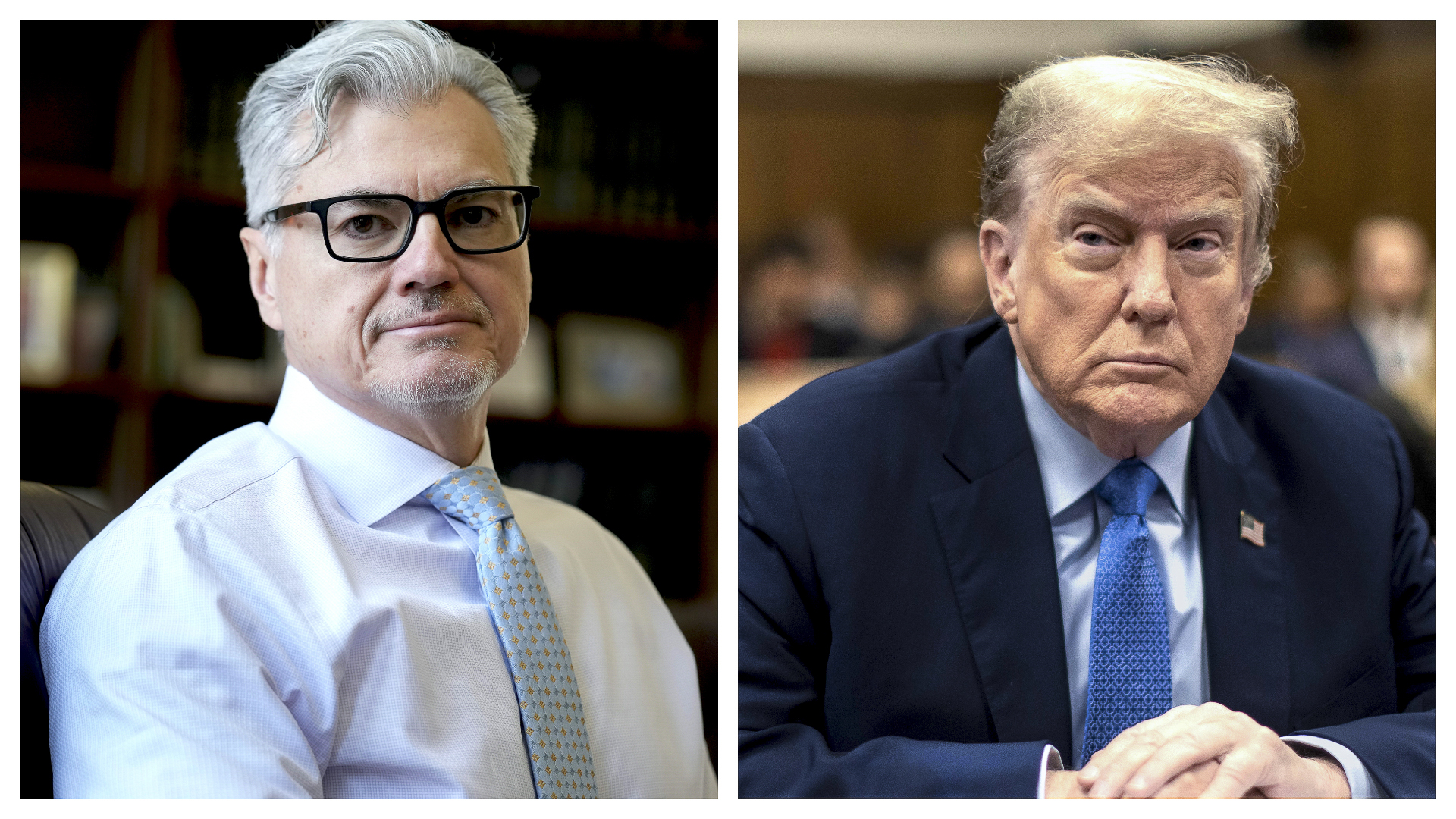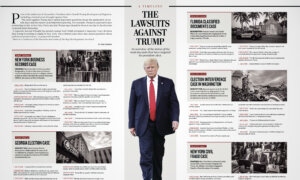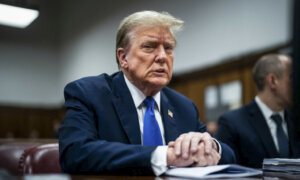New York Supreme Court Justice Juan Merchan said on Sept. 6 that he would delay sentencing in former President Donald Trump’s criminal trial until after the 2024 presidential election.
The new date is Nov. 26 instead of Sept. 18. It was initially scheduled for July but got pushed back following motions related to immunity and Merchan’s recusal.
In a letter to Trump’s attorney and the New York District Attorney’s office, Merchan described the court as a “fair, impartial, and apolitical institution” while explaining that it sought to delay sentencing to avoid the appearance of bias.
“The imposition of sentence will be adjourned to avoid any appearance—however unwarranted—that the proceeding has been affected by or seeks to affect the approaching Presidential election in which the Defendant is a candidate,” he said.
Merchan added that “adjourning decision on the motion and sentencing, if such is required, should dispel any suggestion that the Court will have issued any decision or imposed sentence either to give an advantage to, or to create a disadvantage for, any political party and for any candidate for any office.”
Trump was found guilty in May on 34 counts of falsifying business records. Merchan had scheduled sentencing for July but postponed the date after the Supreme Court’s ruling on presidential immunity.
Trump and his legal team have repeatedly called for Merchan’s recusal, citing his daughter’s leadership in a Democratic political consulting firm. His attorneys have also sought to challenge the verdict based on the Supreme Court’s July ruling on presidential immunity. Trump v. United States saw the Supreme Court holding that presidents did not enjoy criminal immunity for unofficial acts.
Post-Election Timeline
Merchan’s letter set Nov. 12, also after the election, as the date for him to issue a decision on immunity.Trump had attempted to delay sentencing by requesting to stay a federal judge’s dismissal of his attempt to relocate the case. Also on Sept. 6, he denied Trump’s request for a stay on his order related to the rejection.
U.S. District Judge Alvin Hellerstein issued an opinion on Sept. 3 stating that the Supreme Court’s immunity ruling in Trump v. United States hadn’t changed his determination that the conduct under question in the New York case was unofficial.
Hellerstein also said it would be inappropriate for his court “to evaluate issues of unfairness or error in the state trial.” Trump had alleged that Merchan mishandled allegations surrounding purported violations of federal election law—namely by misdirecting the jury and withholding certain evidence from their consideration.
Merchan’s letter on Sept. 6 said the jury verdict shouldn’t be diluted by the presidential election.
“The public’s confidence in the integrity of our judicial system demands a sentencing hearing that is entirely focused on the verdict of the jury and the weighing of aggravating and mitigating factors free from distraction or distortion,” he told the attorneys.
“The members of this jury served diligently on this case, and their verdict must be respected and addressed in a manner that is not diluted by the enormity of the upcoming presidential election. Likewise, if one is necessary, the Defendant has the right to a sentencing hearing that respects and protects his constitutional rights.”
His letter came on the same day that Trump’s appeal in the E. Jean Carroll defamation case came before the U.S. Court of Appeals for the Second Circuit, where Trump is seeking an appeal of Hellerstein’s decision on relocating the case that Merchan is overseeing.
During a press conference, Trump denounced the various lawsuits against him while alleging a vast abuse of the justice system. His case before Merchan is the only one of his four criminal cases to reach a verdict. Merchan’s decision all but foreclosed the possibility that he would be running for president from a jail cell.
If he wins, he’s expected to withdraw the two federal cases against him. Even if he is sentenced in his state cases—in New York and Georgia—legal experts have told The Epoch Times that the Constitution would preclude him from completing those sentences as president.
Merchan’s sentencing delay came just a day after U.S. District Judge Tanya Chutkan outlined a new schedule for proceeding with Trump’s federal election interference case in the District of Columbia after the Supreme Court’s decision on immunity. Chutkan’s latest set of deadlines extended only until the end of November.
During a status conference on Sept. 5, she said the timing of the election was not relevant and that she wouldn’t consider that factor in scheduling pretrial proceedings.
“This case has been pending for over a year,” Chutkan said. The judge said that the court was “hardly sprinting” toward the finish line.














